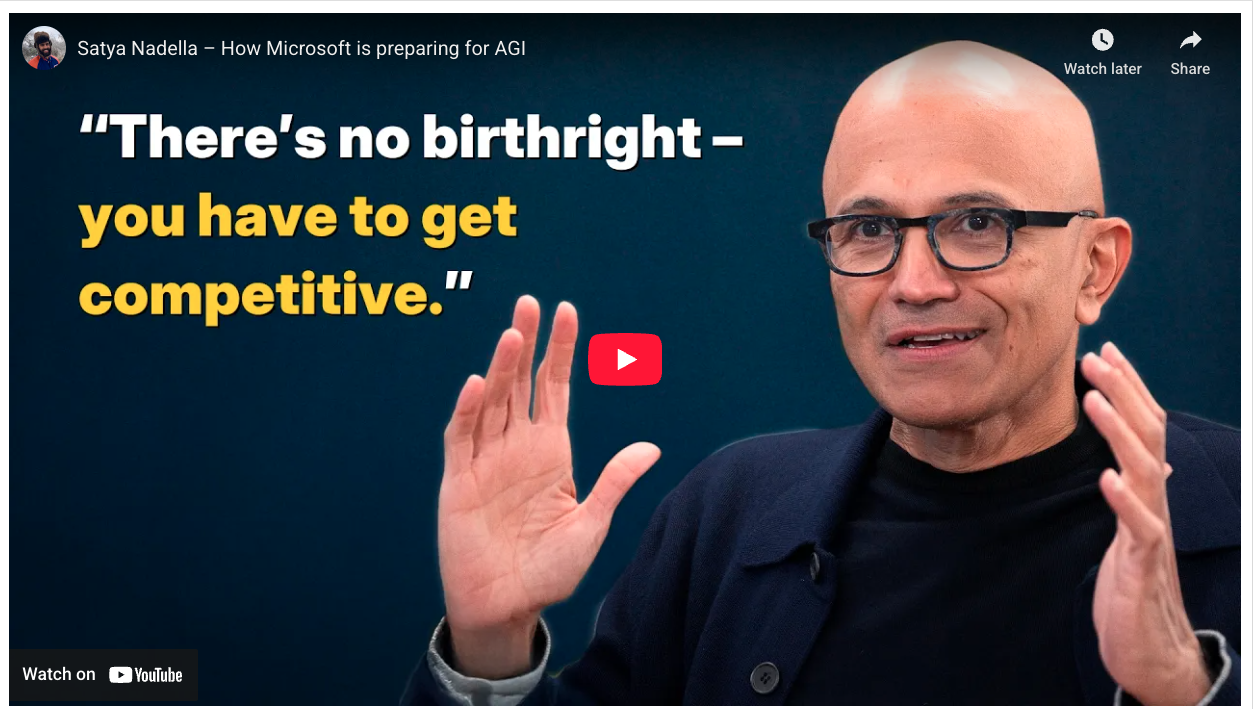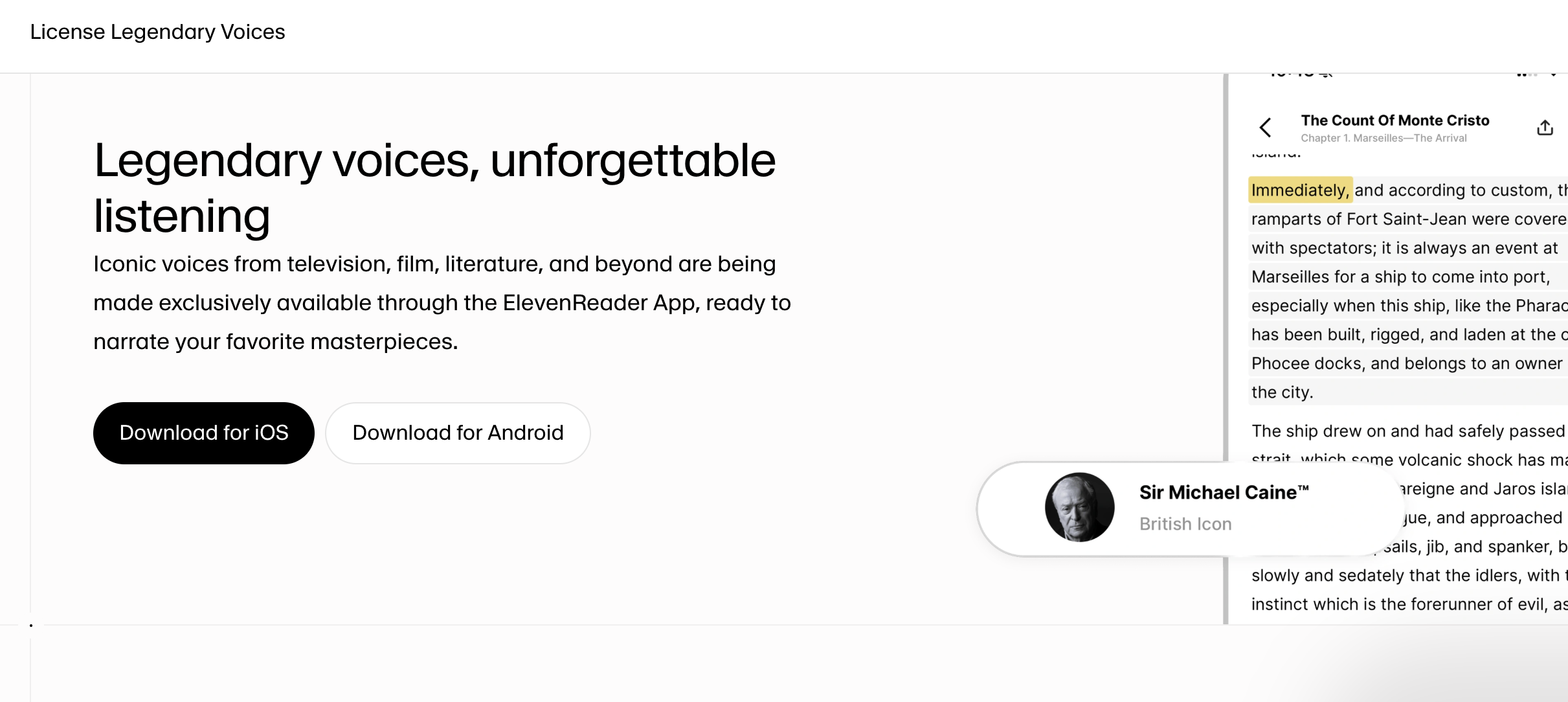Here's the thing: everyone's an AI expert now, but nobody knows what's actually happening.
Your feed is clogged with hot takes. Your inbox drowns in "AI will replace your job by Halloween" think pieces. Every LinkedIn influencer has cracked the code to AGI (spoiler: they haven't).
But where's the analysis that makes you go "ohhh, that's what this means"? The research that connects the dots? The expert breakdowns that don't require a PhD to understand?
That's what we're building here. Consider this our digital filing cabinet of AI insights that made us stop mid-scroll and actually think.
Twice a week (Wednesdays and Fridays), we hunt down the smartest AI commentary, most revealing research, and sharpest analysis the internet has to offer. No fluff. No hype. Just the deep reads that'll make you the most informed person at your next team meeting.
Think of it like SparkNotes for the AI revolution, except we actually read the whole thing while you were asleep.
October 4
- This conversation between Zach Levi and Joe Lonsdale (at 41:48) is one of the best discussions about whether AI will devastate or elevate the workforce between a creative person and a business person:
- Levi argued that AI progress "cannot be stopped, only guided" and warned that Hollywood studios have already trained models on 150,000+ scripts while developing creator tools that could automate film production at a fraction of current costs, threatening not only 7 million driving jobs but creative professions requiring decades of skill, with AI potentially eliminating jobs across all industries faster than new ones can be created.
- Lonsdale countered that historically new technologies create more wealth and demand than they destroy (citing several million unfilled vocational jobs and construction automation increasing rather than decreasing opportunities), and that AI-driven productivity gains would generate enough surplus wealth to fund entirely new categories of human-centered work like mentorship, in-person elder care, and community building—roles that require human presence and can't be automated.
- Peter Yang sat down with Meaghan Choi of Claude Code to talk about how to take your designs and turn them into Code; a FANTASTIC video + walk through!
- Mathematician Terence Tao says he used ChatGPT to help him save hours of work coding something manually to answer a MathOverflow problem (which is a Q&A platform for professional mathematicians)—original post.
- Andrej Karpathy weighed in on the debate between pure RL and LLMs (which we covered on Sunday):
- He pushes back against Sutton's criticism that LLMs are flawed because they learn from human data rather than direct world experience, arguing that animals aren't learning from scratch either.
- Evolution pre-programmed them over billions of years, and since we can't re-run evolution, pre-training on internet text is our “crappy evolution” that solves the cold start problem, making LLMs not failed animals but rather “ghosts” (statistical distillations of human knowledge) that might represent an entirely different but equally valid path to intelligence. just like planes:birds. So… Artificial Ghost Intelligence??
- Dwarkesh also responded to the reaction to the debate (which started with his podcast interview w/ Richard Sutton), saying that imitation learning (training LLMs on human data) and reinforcement learning aren't mutually exclusive paths to AGI but complementary approaches—human data serves as the necessary prior (analogous to fossil fuels bridging waterwheels to renewables) that makes ground-truth RL tractable, evidenced by how we needed pre-trained models before we could RL them to achieve IMO gold medal performance.
- AI-powered security scanners found 22 vulnerabilities in curl's mature codebase, demonstrating that even thoroughly-reviewed open source projects can benefit significantly from AI-assisted security auditing.
- Microsoft researchers demonstrated how AI protein design tools successfully created toxic protein variants that evaded existing biosecurity screening systems—essentially creating "zero-day" biological threats.
- This fascinating analysis shows how AI agents are fundamentally reshaping social media marketing, where 77% of users now rely on ChatGPT as a search engine and brands must optimize for AI citation rather than clicks.
- Giles Thomas provides a detailed walkthrough on initializing LLM training from scratch, explaining how setting deterministic random seeds ensures reproducibility and how cross-entropy loss minimizes a language model's "surprise" at each token prediction.
- Fastmail's thoughtful stance on AI usage maintains that all public-facing content must be human-authored with full accountability, signaling corporate resistance to invisible AI authorship.
- A recent Science study shows how AI can now "paraphrase" toxic protein DNA codes to bypass biosecurity screening, generating over 75,000 dangerous variants that slip through safeguards meant to catch smallpox or anthrax genes.
- Librarians are battling the flood of "AI slop" in their collections, revealing both the current ease of spotting poorly written books and concerning safety risks like mushroom foraging guides with potentially deadly inaccuracies.
- Gloo's groundbreaking AI benchmarking framework evaluates AI models not just on technical performance, but on how well they promote human flourishing across seven dimensions of well-being.
- Simular controls your computer to automate tasks by clicking buttons, filling forms, and navigating apps for you, like booking a flight or completing a web form without touching your mouse (code, paper).
- A16z's new report breaks down the top 50 apps that startups are spending money on.
- YouTube has become the dominant video source cited in Google's AI Overviews, being referenced 200x more than any other video platform and even outpacing traditional text authorities like Mayo Clinic.
- Axiom raised $64M to build a self-improving superintelligent reasoner, starting with an AI mathematician.
- Ed Zitron published the ultimate case against generative AI, which is worth a read even if you’re pro-AI to understand the legitimate criticisms of the industry; we’d like to see a similarly well-sourced rebuttal to this so we can make up our own mind on the subject one way or the other lol.
- For the bull case, watch this 2 hour episode of Cheeky Pint with Marc Andreessen who who argues AI represents “computer industry v2”, the first fundamental reinvention of computing in 80 years, and makes the case that productivity gains will create hyper-deflation rather than unemployment.
October 1
- Researchers found that small improvements in a language model (like ChatGPT)’s single-step accuracy (so how accurate each step is in a series of steps) compound exponentially into dramatically longer task completion horizons (ex: GPT-5 executes 2.1K+ steps now vs Claude-4's 432), challenging the narrative of diminishing returns from scaling and suggesting current short-task benchmarks severely underestimate the economic value of continued AI investment (AI bubble who?? I don’t know her!).
- Ethan Mollick argues AI can now do most tasks, but most jobs are made up of lots of tasks, so AI just shifts what you do in your job, not replace your job; therefore, the key area to focus on at work is “what’s worth doing” as opposed to being productive just for the sake of producing… or we’ll all drown in a sea of dreaded workslop.
- If you’re deep into AI, this LoRA paper from John Schulman at Thinky (ex OpenAI CTO Mira Murati’s $10B startup) is for you. Also, since someone asked us, this paper tries to explain wtf “AGI” (artificial general intelligence) really is.
- Researchers uncovered how AI systems perpetuate caste discrimination, finding that large language models reflect harmful stereotypes against Dalits while India's rapid AI adoption without proper ethical guardrails threatens to codify centuries-old discrimination into new technologies.
- This analysis reveals how LLMs have become the ultimate "demoware" - looking impressive in cherry-picked demonstrations but failing the critical "could you do your job without it?" test, potentially putting hundreds of billions in AI infrastructure investments at risk.
- JetBrains is pioneering a new approach to AI model training by collecting real developer data instead of relying on limited public datasets, offering potential free subscriptions to early adopters while creating smarter tools for complex coding tasks.
- The convergence of U.S. government shutdown and tech tensions creates a perfect storm - federal agencies halt over healthcare disputes while the Fed cuts rates and China bans Nvidia AI chip purchases, escalating the economic and technological cold war.
- Understanding how data-driven decision making transforms business reveals not just reduced errors and improved efficiency, but the strategic uncovering of opportunities that remain hidden with traditional intuition-based approaches.
- Extract-0, a relatively small 7B parameter model, outperformed trillion-parameter giants like GPT-4 at document extraction tasks while modifying only 0.53% of its weights during training, suggesting a future where task-specific AI models could replace general-purpose ones for specialized business applications.
- Anton Sten's analysis reveals how AI dramatically speeds up creation but amplifies both good and bad decision-making—meaning the future belongs to hybrid teams who combine human insight with AI capability rather than those who try to skip the human part.
- The Guardian debunks the myth that em dashes are a reliable "smoking gun" for spotting AI-generated content, while offering a sobering look at how AI displaced 76,440 jobs by 2025 with 77% of new AI-created positions requiring advanced degrees.
- Research into corporate spin shows how companies strategically blame workforce reductions on technology while data suggests the real impact of automation is far more nuanced than executives publicly claim.
- Sharif Shameem's collection of 28 wishlist AI tools reveals how specialized, niche AI applications could actually outperform general-purpose agents—from AI cameras that make iPhone photos look like they were shot on a Leica to personalized fitness coaches.
- Robotics pioneer Rodney Brooks warns we're in a "humanoid robot bubble" with companies like Figure AI reaching $39 billion valuations while the underlying technology still struggles with basic tasks like grasping irregular objects.
- Anthropic's engineering team explains how AI development has moved beyond simple prompt crafting to the more sophisticated management of complete token contexts, introducing "just in time" loading strategies where agents use lightweight references to dynamically pull information when needed.
- Browser extensions are quietly harvesting your AI chat conversations—a shocking 67% of AI Chrome extensions collect user data and 41% gather personally identifiable information including credit cards and passwords.
- Breakthrough architecture shows compute-in-memory technology achieves up to 1,894x better energy efficiency and 200x speedups over NVIDIA GPUs for transformer models and LLMs by solving the fundamental "memory wall" problem.







